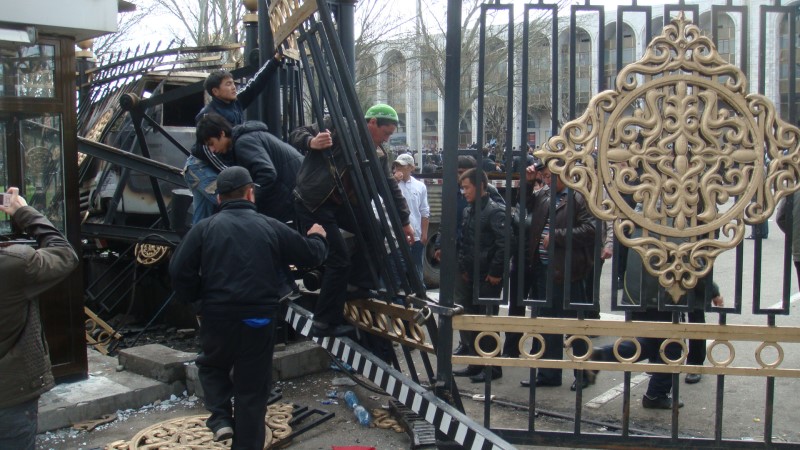Kyrgyzstan’s Third Revolution
By Johan Engvall
October 8, 2020, the CACI Analyst
Kyrgyzstan is again in turmoil following the country’s parliamentary elections on October 4. The day after the election, thousands of demonstrators gathered in central Bishkek to protest the outcome of what opposition leaders described as the dirtiest in the country’s history, ending in a violent showdown between riot police and demonstrators. The fighting went on long into the night, until the protesters overrun the police and seized the presidential palace and the parliament. State power collapsed in the blink of an eye. Now begins the hard part of bringing back law and order and finding a viable path forward. The outcome is genuinely uncertain. There are no boundaries for what kind of interests that can lay claim on political authority. Old and new politicians, criminal groups and political activists all try to fill the power vacuum.

Kyrgyzstan's prime minister resigns over corruption scandal
By Arslan Sabyrbekov
May 6th, the CACI Analyst
On April 11, Kyrgyzstan’s prime minister officially announced his decision to step down amidst allegations of corruption. Temir Sariev, who has headed the Kyrgyz executive for less than a year, became the 26th Kyrgyz prime minister to leave his post since the country’s independence.



